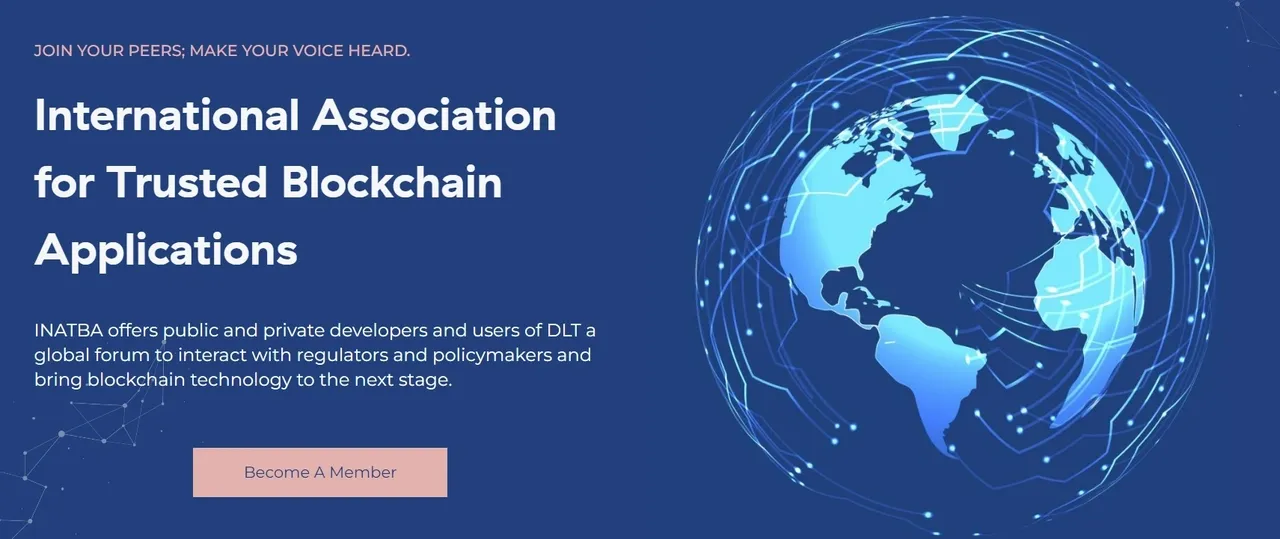What is INATBA?
NATBA (International Association for Trusted Blockchain Applications (inatba.org)) is a non-profit organization that was established in April 2019 in Brussels, Belgium, with the aim of bringing together blockchain and Distributed Ledger Technology (DLT) stakeholders from different industries, such as finance, healthcare, supply chain, energy, and more. INATBA has the support of the European Commission, which recognizes the importance of blockchain technology in promoting innovation, economic growth, and social well-being.
Mission and purpose
In their own words, “The global blockchain association INATBA serves as the bridge between public and private entities in the blockchain ecosystem, INATBA facilitates positive change in the blockchain ecosystem. We are dedicated to supporting and promoting our Members as part of our work to bridge public and private entities and promote global blockchain adoption across diverse fields such as law, finance and education.”
The purpose of INATBA is to provide a forum for blockchain and DLT stakeholders to collaborate, exchange knowledge and best practices, and advocate for the responsible deployment and use of these technologies. INATBA aims to establish a regulatory framework that fosters innovation, protects consumers, and promotes competition while enabling blockchain and DLT to reach their full potential.
Structure
INATBA’s headquarters are located in Brussels, Belgium, and its activities are overseen by a Board of Directors, which is composed of 10 representatives from different organizations, including academic institutions, non-profit organizations, and industry associations, such as Groupe Caisse des Dépôts, TMP group, Ministry of Industry and Trade of Czech Republic, Jolocom and others. Among its founding members are prominent companies in the blockchain and DLT space, such as IBM, Accenture, ConsenSys, IOTA, and Ripple, among others.
At present, the association has 170 full members coming from 32 countries across the globe.
Its Government Advisory body consists of 37 organizations coming from 24 countries across the globe and its Academic Advisory Body has 53 members from 19 different countries.
The organization has 3 main taskforces:
– MICA taskforce
– COVID taskforce
– Eenergy trading taskforce
and it’s divided into 6 working groups, each of them consisting of 2 members:
– Education
– Identity
– Finance
– Provacy
– Social Impact and Sustainability
– Standards Committee
Membership in INATBA
Membership in INATBA is open to organizations and individuals who share the association’s vision and are committed to promoting the responsible adoption of blockchain and DLT. Members can access a wide range of benefits, including networking opportunities, access to research and reports, participation in working groups, and the ability to contribute to the development of industry standards and best practices.
INATBA’s members also have the opportunity to participate in the association’s policy initiatives, which are designed to engage with policymakers and regulators to shape the regulatory environment for blockchain and DLT. This includes working with regulators to establish clear and consistent legal frameworks, engaging with policymakers to raise awareness about the potential of blockchain and DLT, and collaborating with other industry associations to promote interoperability and standardization.
A short summary…
In summary, INATBA is a non-profit organization that brings together stakeholders from different industries to collaborate, exchange knowledge, and advocate for the responsible adoption of blockchain and DLT. Its mission is to establish a regulatory framework that fosters innovation, protects consumers, and promotes competition while enabling blockchain and DLT to reach their full potential. Membership is open to organizations and individuals who share this vision, and members can access a range of benefits, including networking opportunities, access to research and reports, participation in working groups, and the ability to contribute to the development of industry standards and best practices.

